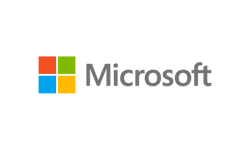Work Integrated Learning (WIL) Digital
When & where
-
ABBCMBNBNLNTNSNUONPEQCSKYT
-
-
Who it's for
- Registered businesses or not-for profit organizations in Canada
Winter 2026 WIL Digital Update
Applications Open — Limited Funding Available
Funding has now been secured for the Winter 2026 term, and applications are open. All Winter placements must conclude on or before March 31, 2026.
While funding remains limited, additional applications are now being reviewed and processed. Employers interested in Winter placements are encouraged to apply as soon as possible for consideration.
Thank you for your continued support in creating meaningful work-integrated learning opportunities for students across Canada.
ICTC's WIL Digital program provides employers with wage subsidies to provide a meaningful work-integrated learning placement to post-secondary students.
WIL Digital is an innovative work placement program that benefits both employers and students. WIL Digital helps employers grow their businesses by providing a wage subsidy to hire post-secondary students while students gain meaningful work experience and on-the-job learning. WIL Digital is funded by the Government of Canada's Student Work Placement Program (SWPP). ICTC is among the first organizations to deliver this program.
In addition to work-integrated learning, ICTC also offers access to exclusive e-learning courses. Through taking these courses WIL Digital students develop foundational technology, business, and entrepreneurship skills.
WIL Digital provides employers with a wage subsidy of up to 50% of a student’s salary up to $5,000, or 70% up to $7,000 for underrepresented students.
Application Information
All employers must complete the Eligibility Criteria Pre-screen for each intended application. The option to proceed will only be available to those who pass the Pre-screen. Apply here.
Once the application is released from the Pre-screen, an email notification will be sent to invite the employer to complete the application steps and submit the application for review. Please allow 24-48 hours for the application to become unlocked and available.
After submission, the application review process takes 5-10 business days.
Quick Facts
Employers:
- You are a registered business or not-for-profit organization in Canada
- You provide a safe workplace
- You have general liability insurance
- You hire the student on payroll (not as a contractor)
- You have the financial capacity to hire a student for the full work term, pay them consistently, and on time
- You are able to provide a meaningful work-integrated learning experience
Students:
- They are a Canadian Citizen, a Permanent Resident or a Protected Person as defined by the Immigration and Refugee Protection Act
- They are registered or enrolled at a Canadian post-secondary education institution and are able to provide proof of full-time or part-time enrolment during placement
- They are legally entitled to work in Canada
*International students do not qualify.
Read below for a list of ineligibility criteria.
- Federal, provincial, territorial or municipal governments
- Organizations which are extensions of a federal, provincial, territorial, or municipal government, such as crown corporations, hospitals, public long-term care facilities, public or private schools, and post-secondary institutions
- Members of Government
- Organizations that engage in partisan political activities
- Financial institutions and services companies, including businesses that underwrite loans or do investments
Common Disqualifiers:
- Familiar relationships: The student is an immediate family member of himself or another employee, by definition of: father, mother, step-father, step-mother, brother, sister, spouse (including common law), child (including common-law partner), step-child, ward, father in law, mother in law or relative permanently residing in the household of the Employer.
- International students
- The student is a current permanent full-time or part-time employee of the host employer.
- The student is a director, officer, manager, founder, shareholder or executive of the Host Employer or any other Company.
- Retroactive placements
Please note that this list of exclusions and disqualifiers may not be exhaustive. ICTC reserves the right to amend eligibility criteria at our discretion.
- Confirm your eligibility based on the criteria above.
- Visit our application page and click the "APPLY" button.
- Log in to Survey Monkey. If you do not have an account with Survey Monkey, please register to gain access to the application portal.
- Start the application process, the option to proceed will only be available to those who pass the Eligibility Criteria Pre-screen.
- An email notification will be sent providing you with updates on your application's status.
- Women in STEM
- Indigenous Peoples
- Students with disabilities
- Visible minorities
- Newcomers to Canada
- First-year students
What is ICTC's WIL Digital?
work placements facilitated.
post-secondary students provided with practical work experience in digital economy roles.
employers supported to create work placements for emerging digital talent.
e-learning courses providing online professional development to support student success in the digital economy.
students belonging to under-represented groups in the digital economy.



